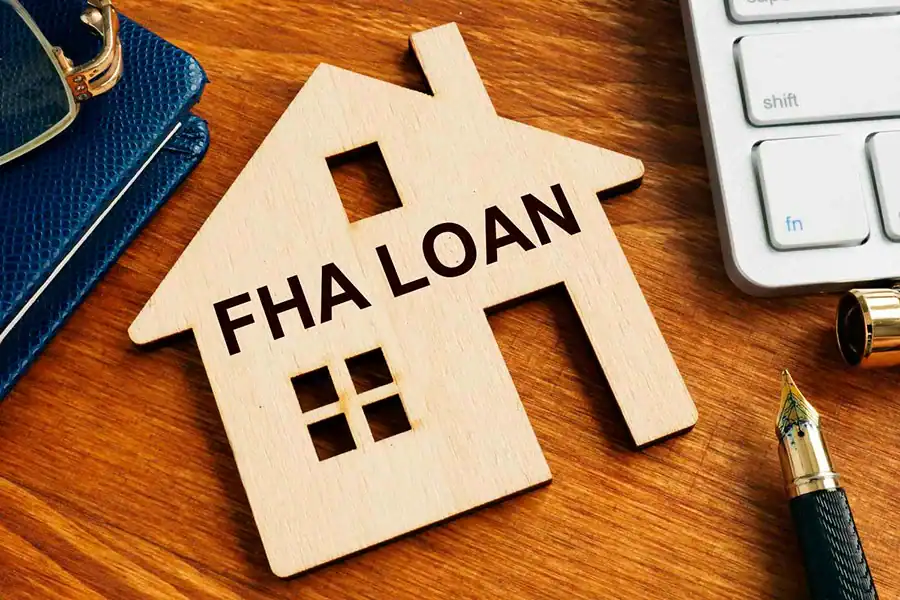Your Most Trusted Partner in Home Purchase Loans & Refinance Loans
Open Hours: Mon. - Fri., 9:00 a.m. - 6:00 p.m.

If you’re buying a home in Tampa, choosing between an FHA or conventional mortgage can feel overwhelming. Both funding options are popular among Tampa buyers, and the best choice depends on your credit score, financial goals, and down payment savings. Explore Tampa conventional loan options to see how this type of mortgage could fit your needs, or keep reading to compare both loans side by side.

An FHA loan is a government-insured mortgage backed by the Federal Housing Administration. It’s designed to help low-to-moderate-income buyers, especially first-time homebuyers, get into a home with a smaller down payment and more lenient credit requirements.
In Tampa’s competitive housing market, FHA loans provide an accessible path to homeownership for consumers who might not qualify for conventional financing. Whether you're purchasing in Seminole Heights, Temple Terrace, or East Tampa, this loan can help make homeownership a reality even if you’re still building your credit or savings.
Learn more about FHA loans in Tampa to see if this option fits your needs.

A conventional home loan is a mortgage that’s not backed by the United States government agency like the FHA or VA loans. Instead, it’s funded by private lenders and typically follows guidelines set by Fannie Mae and Freddie Mac. Nonetheless, this loan option still complies with federal and state lending laws to protect consumers. Conventional loans include both conforming loans (within local limits set by the Federal Housing Finance Agency) and jumbo mortgages, which exceed those limits.
In Tampa, conventional loans are a popular choice for buyers with solid credit and stable employment history. They offer more flexibility in property types and often come with lower long-term costs, especially if you can put 20% down. Whether you're eyeing a modern condo in Channelside or a family home in Westchase, a conventional loan can provide more purchasing power and competitive terms.
Check your conventional loan eligibility in Tampa to see if this option fits your home buying goals.
| Feature | FHA Loan | Conventional Loan |
| Min Credit Score | 500-580 | 620+ |
| Min Down Payment | 3.5% | 3-5% |
| Mortgage Insurance | MIP for life (unless refinanced) | PMI under 20% down, removable |
| Loan Limits (2025 Hillsborough) | ~$517,500 | ~$806,500 |
| Eligible Properties | Primary residences only | Primary, second home, investment |
Tip: Don’t forget to factor in tax implications when comparing loan options especially if you plan to deduct mortgage interest or real estate taxes.
In today’s changing economy, understanding the differences between FHA and conventional loans can help you make a more confident, informed home financing decision. See our FHA vs Conventional Comparison Chart for detailed side-by-side features and updated loan requirements. Additionally, you can use our mortgage calculator to estimate how Conventional or FHA loans compare based on your finances.
Choosing between an FHA and a conventional loan depends on your overall personal finance situation, credit score, and homeownership goals. Here’s a quick guide to help you decide:
When comparing loan offers, don’t just focus on the interest rate—look at the annual percentage rate (APR) as well. The APR reflects the total cost of the loan, including fees and other charges, giving you a clearer picture of what you’ll actually pay over time.
| Credit Score Range | Typical Minimum Down Payment | Eligible for Best Rates? |
| 500 – 579 | 10% (FHA only) | ❌ Not eligible |
| 580 – 619 | 3.5% – 5% | ❌ Not eligible |
| 620 – 679 | 3% – 5% | ⚠️ Possibly with higher rates |
| 680 – 739 | 5% or more | ✅ Often eligible |
| 740+ | 10% or more | ✅ Strongly eligible |
This chart gives you a quick sense of where you may stand as a borrower and what options might be best based on your credit profile.
Check if you qualify for a conventional loan in Tampa to see if this option fits your home buying goals.
It depends on your financial situation. FHA insured loans are often better for Tampa buyers with lower credit scores or limited down payment funds, while conventional loans are ideal if you have strong credit and want to avoid mortgage insurance by putting 20% down.
Mortgage rates fluctuate based on economic conditions and policy decisions by the Federal Reserve. FHA loans typically offer slightly lower base rates than conventional loans. Buyers can also reduce their interest rate further by purchasing discount points. However, you’ll still need to account for the added cost of mortgage insurance. In the end, the best choice depends on your goals and your target neighborhoods in Tampa.
Many Tampa realtors prefer conventional loans because they often close faster, have fewer strict appraisal requirements, and show sellers that the buyer is financially strong. This is especially important in competitive Tampa areas like Carrollwood, Westchase, and South Tampa, where multiple offers are common.
FHA loans don’t offer traditional home equity loans or HELOCs. If you want to borrow against your home’s value, you’ll typically need to refinance into a conventional loan first.
The main downsides of an FHA loan for Tampa buyers are:
To qualify for a conventional loan in Florida, including the Tampa market, you generally need a minimum credit score of 620. However, Tampa buyers with scores of 700 or higher often receive better interest rates and lower PMI costs, helping them save on monthly payments. Lenders will also evaluate your gross income to ensure your debt-to-income ratio stays within acceptable limits usually under 45% for most conventional loans.
At Ebenezer Mortgage Solutions, we specialize in helping Tampa buyers choose the right mortgage with confidence. Whether you're torn between an FHA or conventional loan, our team will walk you through every option, clearly, patiently, and with your goals in mind.
Unlike a bank or credit union, which can only offer their own limited set of loan products, our team can shop across multiple lenders to find the most competitive rates and terms for your unique situation. Rather than working with just one loan officer at a single institution, you’ll have access to a wider range of loan programs and more flexibility through us.
As a trusted Tampa mortgage broker, we provide:
⭐ 2,000+ Happy Clients | 📍 Tampa-Based | 🕐 Fast Pre-Approvals (99.6% Process Efficiency)
Schedule your free mortgage consultation today to compare FHA and conventional loan options with confidence. Our team will guide you through every step.
📞 Call Ebenezer Mortgage Solutions at (813) 284-4027
📍 See our Google reviews and get directions
Reviewed by Yuleisy Gonzalez Alvarez, NMLS #1507766
CEO & Mortgage Loan Originator at Ebenezer Mortgage Solutions
Yuleisy has over a decade of experience in mortgage lending, including roles in underwriting, processing, and executive leadership. As the founder of Ebenezer Mortgage Solutions in Tampa, FL, she has helped over 2,000 families secure home financing.
